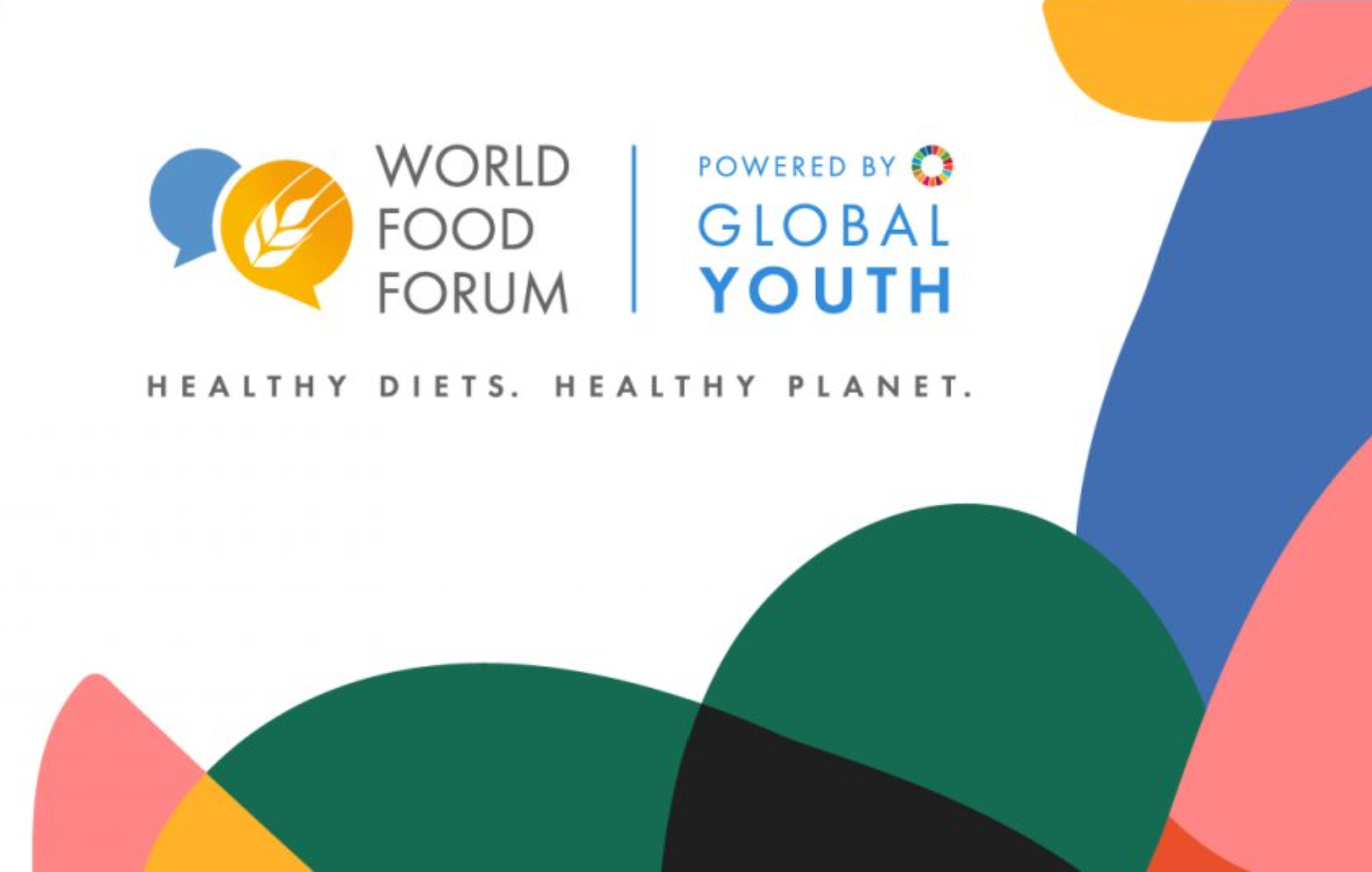The webinar was organised by the ECOSOC Youth Forum on 21. April 2022 by the The ECOSOC Youth Forum as virtual side-event “Healthy Diets. Healthy Planet – youth led action for a better food future”. The ECOSOC Youth Forum side-event kick started this year’s activities of the World Food Forum and aims at bringing together youth activists, delegates, innovators, and young UN professionals to explore how healthy diets and healthy planets connect, contribute to and benefit from progress towards the 2030 Agenda for Sustainable Development and the particular SDGs under review at the Youth Forum (SDGs 4, 5, 14, 15 and 17).
The first panel discussion was opened by Dr. Maximo Torero Cullen, chief economist of the Food and Agriculture Organisation of the United Nations, who highlighted the importance of the entire agri- food system as such and warned that it might not be resilient to more shocks after the COVID- 19 pandemic and the war in Ukraine. However, climate change is a very pressing matter. The fragility of our food system was highlighted through an example that just one production drop in any other of the main food supplying countries, like massive floodings for instance, would result in a deep food crisis affecting the entire world. He pointed out that it is therefore necessary to diversify resources and make the system more resilient and sustainable to outside effects. He called for a more effective global redistribution of food and resources and called for introducing necessary changes to the already existing system. He urged the youth to push for a change and emphasised that the foundation of change is the behaviour.
The discussion was then continued by Lisanne Van Oosterhoud, Ambassador of the World Food Forum FAO and European Commission Climate Pact Ambassador. She encouraged young people to have a dialogue over the internet because it connects people globally and offers different perspectives from all over the world. She also pointed out that change is necessary at the local and international sphere and that the intergenerational dialogue is crucial.
UN Youth Observer Cynthia Yue mentioned how climate change and food insecurities affect the most vulnerable populations especially black, indigenous, and people of colour disproportionally, yet the Global South is still underrepresented in the relevant international discussions. It is therefore important to ensure that everyone is involved and emphasised that young people have a crucial role in confronting the system.
The second panel discussion focused on the question what a healthy diet is and was started off by Mik, who is a nutrition leader in Malawi and focused on youth nutrition. He emphasized that especially young people are affected by malnutrition and more information needs to be made accessible for everyone.
This was followed by Machiel Van Nieuwenhove, Co- founder of “Greening the Camps” and “Baladi Collective” which offers rooftop farms and urban gardening in refugee camps in Yemen and the Middle East. He explained that particularly refugee camps struggle to access healthy and nutritious foods. Although Covid- 19 paralysed their activities for most parts a local initiative was founded.
The discussion was closed by Priya Prakash who is the founder of a health initiative in schools in India that promote nutrition education and collaborate with the government to improve information access on nutrition and health.
The next panel was opened by Laurence Jeangros, who is a scientific collaborator at the University of Lausanne researching the “true price of food”. This means that not only the price of food as such is being considered but the impact of food on our climate, environment and social life, is calculated looking at the planetary boundaries of this initiative. This aims at reshaping how food is being valued and lead to a more regenerative economy.
The next speaker in this discussion was Oladosu Adenike from Nigeria who is part of the African Youth Initiative of Climate Change (AYICC). He emphasized the importance of nature, and that urgent action is necessary to protect the climate and the future.
The last speaker of the panel was Earlene Cruz who highlighted the Importance of not only gathering data and gathering data on food and climate change but also to use the data to improve the situation. One example was to look at nutrition calculations as well as carbon calculations. She urged for the need to challenge the existing status quo and the need to include young people in this process. She also added that climate smart agriculture also relies on educated and aware consumers that change their behaviour and patterns. One of her initiatives called Kitchen connection offers exactly this education and awareness.
The event was closed by Genna Tesdall, Director of Young Professionals for Agricultural Development (YPARD) who congratulated the Global Youth and the World Food Forum in creating a strong link to the youth and encouraged young people to be active in agri- food systems.
The final speaker was Yugratna Srivastava who is Policy-Advocacy Coordinator at Plant-for-the-Planet and Youth Constituency Focal Point to UN Environment Programme, challenging the international community for allocating funds in a matter of weeks for “arms” in the name of security yet failing to secure funds for the young people and climate change. She also pointed out how important it is to give young people a voice and to incorporate them in already existing governance structures. She also pointed out that young people were able to participate in the World Food Forum which is a good start.




